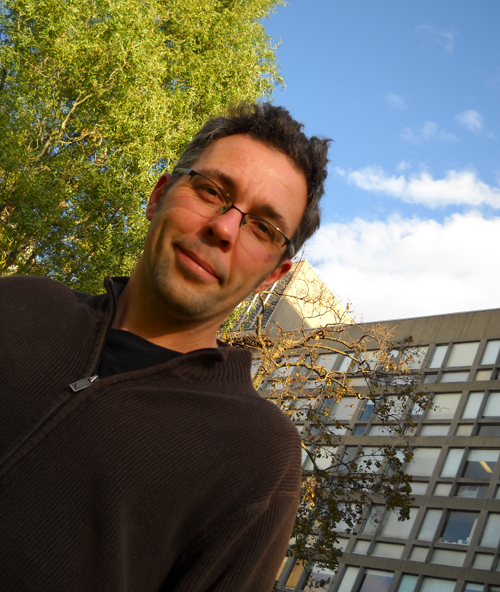
Climate change threatens to displace hundreds of millions of people around the world, but international policy-makers may actually use migration to lift many of them out of poverty, says one U of G political scientist.
Prof. Craig Johnson believes policies including a kind of carrot-and-stick approach can help people uprooted by the effects of climate change to voluntarily resettle with better prospects.
He discusses the idea of “social protection” ─ a term used by development policy researchers ─ in a paper published online this month in Global Environmental Change. Co-authored by Krishna Krishnamurthy, who is with the World Food Program in Rome, the paper is based on a literature review conducted by Johnson during his 2009 research leave at the Tyndall Centre for Climate Change Research and the Environmental Change Institute at the University of Oxford.
Many scientists have warned that climate change may cause sea level rise, flooding, droughts or other extreme climate-related events. Johnson says calculating how many people might be displaced by climate change is a challenge; estimates suggest as many as 250 million people by the year 2100 and up to 700 million by 2050. “Hot spots” of likely displacement and conflict caused by climate are the Caribbean and Gulf of Mexico, the Sahel zone south of the Sahara desert, southern Asia, eastern China and North Africa, especially the Nile delta.
He says policy-makers, governments and development agencies need to consider the long-term political and ethical implications of adapting to climate change, including migration of affected populations, not just within borders but across them.
More than that, he says, judicious funding by governments and international institutions might help persuade people to move and resettle before disaster strikes. Providing funding for “economic migration” could supplement incomes and help households earn more money and obtain social benefits such as health care, food and education.
Johnson says funding could mix cash, assets and “conditional” support. Research has shown that such funding can help migrants find jobs and skills training, subsidize legal and administrative expenses, cover relocation costs (including opportunity costs), provide insurance against migration risks and support social networks for migrants.
He acknowledges that not everyone is sold on conditional transfers that tie funding to a desired behavioural change, such as pursuing education. When he discussed his research in a workshop held this past summer by the Department for International Development in the United Kingdom, some listeners suggested well-designed aid policies might be better tools than a carrot-and-stick approach.
Other challenges include targeting social protection to recipients, administering programs, tracking environmental change and encouraging economic migration.
Some researchers have called for a new climate refugee protection regime. “I think the international system needs to come up with a different way to recognize migration across international boundaries,” says Johnson. “Currently, the United Nations High Commissioner for Refugees does not recognize the term ‘environmental refugee.’”
He says various groups have suggested altering that convention and using international transfers to help with climate-induced displacement. The Kyoto Protocol, which expires in 2012, mentions climate-induced displacement but fails to spell out how to accommodate large-scale movement of populations.
By treating recipients more like economic migrants rather than “disaster migrants,” social protection might offer more lasting benefits, says Johnson. He has studied international development and environment, especially how to use development policy to combat rural poverty and improve livelihoods in South and Southeast Asia. He also looked at forced displacement and climate change in India’s Ganges-Brahmaputra basin, home to some 400 million people.
Johnson will discuss “Climate Change and Development” as part of the international development speaker series Nov. 19 at 3 p.m. in Rozanski 103.